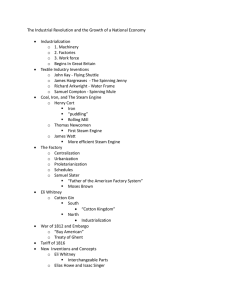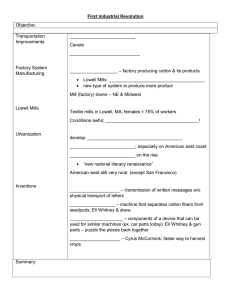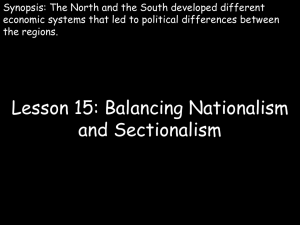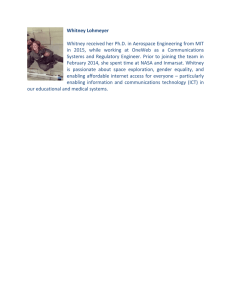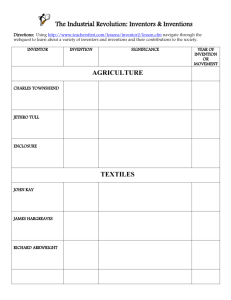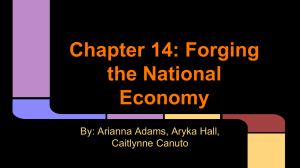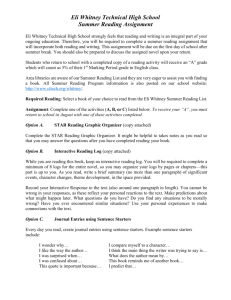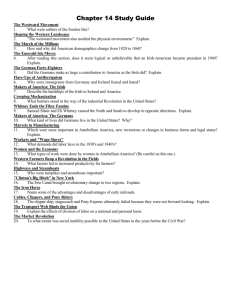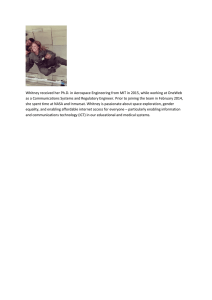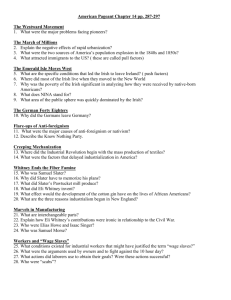chapter 14: forging the national economy
advertisement
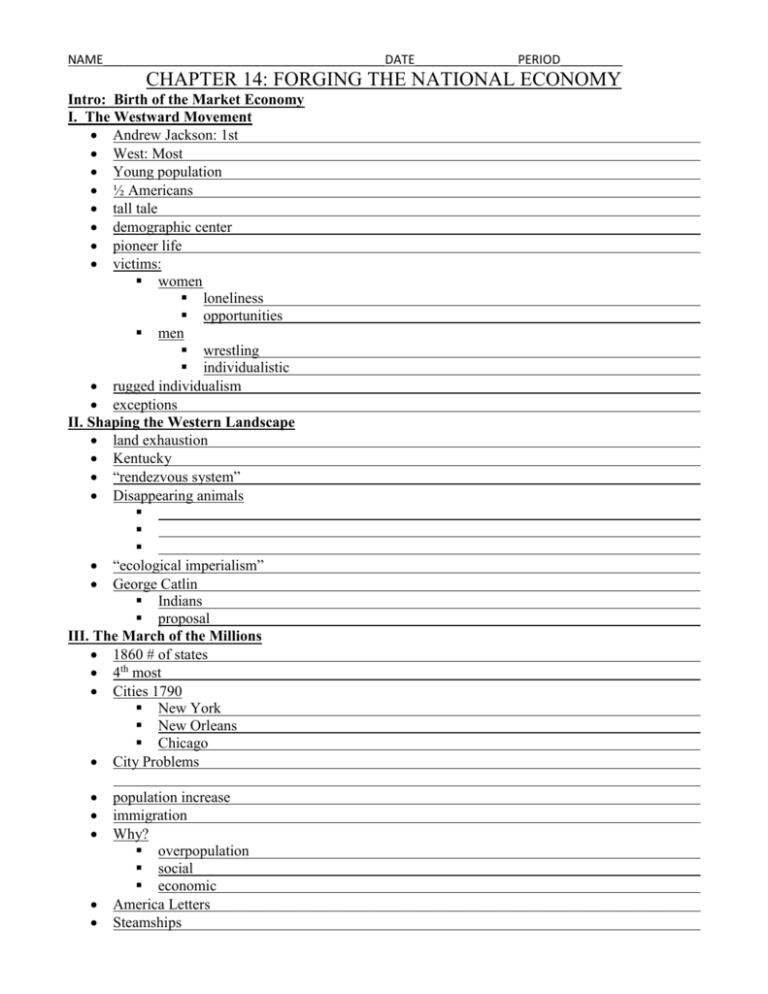
NAME_________________________________________DATE_______________PERIOD_________ CHAPTER 14: FORGING THE NATIONAL ECONOMY Intro: Birth of the Market Economy I. The Westward Movement Andrew Jackson: 1st West: Most Young population ½ Americans tall tale demographic center pioneer life victims: women loneliness opportunities men wrestling individualistic rugged individualism exceptions II. Shaping the Western Landscape land exhaustion Kentucky “rendezvous system” Disappearing animals “ecological imperialism” George Catlin Indians proposal III. The March of the Millions 1860 # of states 4th most Cities 1790 New York New Orleans Chicago City Problems population increase immigration Why? overpopulation social economic America Letters Steamships IV. The Emerald Isle Moves West Potato rot Black Forties cities Irish Catholics Biddies and Paddies NINA Ancient Order of Hibernians Molly Maguires property politics “Twisting the British Lion’s Tail” V. The German Forty-Eighters Uprooted farmers Carl Shurz Middle West less political? Cultural Contributions isolationists education aloofness VI. Flare-ups of Antiforeignism nativism Catholic schools American fears Know-Nothing Party violence pluralistic VII. Creeping Mechanization steam factory system cheap land labor shortages money shortage British monopoly VIII. Whitney Ends the Fiber Famine Samuel Slater Moses Brown Eli Whitney changes from cotton gin King Cotton slavery prosperous regions IX. Marvels in Manufacturing War of 1812 Tariff of 1816 Eli Whitney interchangeable parts Elias Howe Isaac Singer patents limited liability “free incorporation” Samuel F.B. Morse X. Workers and Wage Slaves labor problems child workers ballot workers demands opposition strikes Commonwealth v Hunt XI. Women and the Economy preindustrial place factory jobs “factory girls” Lowell Mills Catharine Beecher percentage of women workers “cult of domesticity” love in marriage smaller families “domestic feminism” child rearing XII. Western Farmers Reap a Revolution in the Fields Trans-Allegheny region corn Cincinnati John Deere Cyrus McCormick indebtedness XIII. Highways and Steamboats travel problems Lancaster Turnpike states righters? National Road Robert Fulton steamboat success steamboat dangers XIV. Clinton’s Big Ditch in New York canal craze Erie Canal Economic benefits economic results XV. The Iron Horse better than canals opposition obstacles brakes times gauge XVI. Cables, Clippers, and Pony Riders Cyrus Field the Savannah clipper ships iron tramp steamers Roughing It Pony Express XVII. The Transport Web Binds the Union Changes in transportation change flow of goods continental economy implications XVIII. The Market Revolution market revolution John Marshall and contracts Roger B. Taney changing home prosperity John Jacob Astor unskilled workers drifters rags to riches? opportunity? “a rising tide lifts all boats”
